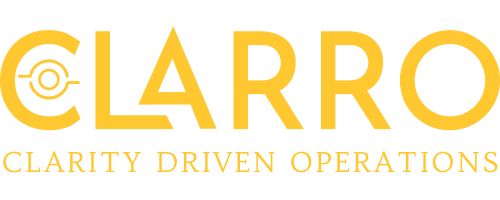Introduction: The Digital Revolution in Car Rentals
The North American car rental industry is undergoing a seismic shift, driven by tech-savvy consumers and the demand for seamless digital experiences. By 2025, the U.S. car rental market alone is projected to generate $33 billion in revenue, while Canada’s market thrives on urban mobility and tourism. At the heart of this transformation lies white-label car rental software—a game-changer for businesses aiming to build scalable, branded online marketplaces.
Whether you’re a startup in Toronto, a multi-location operator in Texas, or a fleet manager in Vancouver, adopting white-label car rental software development ensures you stay ahead in 2025’s competitive landscape. Let’s explore how these platforms are reshaping mobility in the USA and Canada.
Car Rental Market Outlook: USA & Canada (2026–2027)
Key Growth Drivers
- Digital-First Consumers: 75% of bookings will occur online by 2029.
- Flexible Mobility Models: Ride-sharing, P2P rentals, and hourly leases.
- Sustainability: Electric vehicle (EV) rentals surge by 65% post-2025.
- Regulatory Shifts: Compliance with insurance, emissions, and data privacy laws.
Market Snapshot
- USA: Revenue to hit $33B by 2025, driven by business travel, tourism, and app-based rentals.
- Canada: Toronto, Vancouver, and Montreal lead in contactless pickups and AI-driven fleet management.
- Global Users: 815M users by 2029, with North America’s ARPU at $167.45.
Source: Statista, 2024
Why White-Label Car Rental Software is Essential for Business Growth in 2026 (Canada & USA)
In 2025, the car rental industry across the USA and Canada is undergoing a digital transformation. As competition intensifies and customer expectations rise, businesses must find faster, smarter, and more cost-effective ways to enter or expand in the market. That’s where Saas white-label car rental software becomes a game-changer.
Designed to deliver pre-built yet fully customizable platforms, white-label solutions empower businesses to launch car rental services under their own brand, without the time, cost, or complexity of building everything from scratch.
Whether you’re a startup entering the market or an established rental company looking to modernize, here’s why white-label car rental software is an indispensable tool in 2025.
1. Rapid Market Entry with Pre-Built Infrastructure
Launching a car rental platform from the ground up can take 12 to 18 months, not to mention extensive resources and technical oversight. In contrast, a white-label car rental software solution offers a ready-to-deploy framework, reducing time-to-market from months to a few weeks.
This speed is crucial in fast-moving markets like:
- Toronto, Vancouver, and Calgary in Canada
- New York, Los Angeles, Miami, and Houston in the USA
It allows you to capitalize on seasonal demand, test new markets quickly, and beat competitors to launch with minimal lead time.
2. Full Brand Control with Deep Customisation
White-label solutions offer a branded experience that’s indistinguishable from custom-built platforms. You maintain complete control over:
- Visual Identity: Customize logos, colors, and layouts to reflect your brand.
- User Experience (UX/UI): Tailor workflows, booking flows, and navigation for your target audience.
- Rental Models: Adapt the platform to serve various niches, including:
- Luxury car rentals
- Electric vehicle (EV) rentals
- Corporate and long-term leasing
- Peer-to-peer car sharing
- Luxury car rentals
This flexibility ensures your platform stands out in a crowded digital marketplace.
3. Cost-Efficient Growth for Startups and SMBs
For startups and small-to-mid-sized businesses, building rental software from scratch often isn’t financially viable. A white-label model offers:
- Lower upfront costs compared to custom development
- Subscription or pay-as-you-grow pricing models
- Reduced technical maintenance overhead
Instead of investing hundreds of thousands in development, companies can allocate more budget to marketing, customer acquisition, and fleet expansion.
This makes white-label car rental software ideal for:
- Entrepreneurs in regional cities
- Local operators aiming to digitize
4. Scalable Architecture to Support Future Expansion
Modern white-label car rental systems are built to grow with your business. As your operations expand, the platform supports:
- Multi-city and multi-location fleet management
- Dynamic pricing algorithms based on location, time, and demand
- Integration with third-party tools like:
- Payment gateways (Stripe, Square, PayPal)
- GPS and telematics systems
- CRM tools and analytics dashboards
- Insurance APIs and KYC verification modules
- Payment gateways (Stripe, Square, PayPal)
Whether you’re expanding from Toronto to Montreal or from Miami to Atlanta, the system scales effortlessly.
5. Built-In Compliance with Regional Regulations
Operating in North America means navigating a complex mix of taxation laws, driving regulations, and insurance requirements. A reliable white-label car rental software comes pre-equipped with:
- Automated U.S. and Canadian tax calculation tools (HST, GST, local tax rules)
- Driver license verification modules (AI-powered OCR, database matching)
- Digital rental agreements and e-signature functionality
- Insurance tracking and expiration alerts
These features ensure your business stays compliant across provinces, states, and cities—minimizing legal risks and improving operational transparency.
6. Omnichannel Access with Web and Mobile Apps
Customers in 2025 expect convenience. White-label solutions often include responsive web platforms and native mobile apps for iOS and Android—fully branded with your identity. This ensures:
- 24/7 booking access
- Push notifications for offers and confirmations
- In-app chat support or helpdesk integration
- Easy onboarding via mobile number, email, or social login
Offering consistent experiences across devices boosts engagement and builds long-term loyalty.
7. Analytics and Insights for Smarter Decision-Making
White-label platforms provide built-in dashboards to monitor business performance, including:
- Fleet utilization rates
- Revenue per vehicle
- Top locations and peak times
- Customer behaviour patterns
These insights help optimize pricing, promotions, fleet investments, and route planning—ensuring continuous improvement and competitive edge.
8. Faster ROI and Business Sustainability
By cutting time-to-market, reducing development costs, and improving operational efficiency, white-label rental software helps generate revenue faster. Businesses see a faster return on investment (ROI) and are better positioned for:
- Investor confidence
- Partnerships with hotels, travel agencies, or logistics providers
- Franchise or B2B fleet rental opportunities
Final Thoughts: Choose White-Label to Lead the Future of Car Rentals
In a competitive and tech-savvy market like Canada and the USA, staying ahead means moving smart—not slow. White-label car rental software offers a strategic advantage for any business looking to thrive in the evolving mobility ecosystem of 2026.
From fast deployment and lower costs to complete brand ownership and compliance, it’s the ideal solution for modern rental operators.
Top Features of White-Label Car Rental Software in 2026
When choosing a white-label car rental software company, prioritise these functionalities:
1. Online Booking Engine
- Real-time availability checks
- Multi-language/currency support
- Integration with Stripe, PayPal, or Square
2. Fleet Management
- GPS tracking, maintenance alerts
- Fuel/efficiency analytics for EVs
3. Mobile Apps (iOS/Android)
- Self-service check-in/out
- Digital contracts and keyless entry
4. Dynamic Pricing & Discounts
- Surge pricing for peak seasons
- Loyalty programs and referral rewards
5. AI-Powered Analytics
- Demand forecasting
- Customer behaviour insights
6. Multi-Location Support
- Zone-based pricing for cities like NYC or Montreal
- Centralized admin dashboard
Case Study: How White-Label Solutions Empower Marketplaces
Platforms like Turo and Getaround dominate via agile tech stacks. Now, regional players can replicate their success using white-label car rental software in the USA and Canada:
Success Story: Toronto-Based Startup
A local operator used a white-label car rental software company to launch an EV-focused marketplace. Results:
- 200% growth in 8 months.
- 40% cost savings vs. custom development.
Enterprise Example: Multi-State Fleet Manager
A U.S. company integrated white-label software to manage 500+ vehicles across California, Texas, and Florida. Features like automated invoicing and damage inspection reduced operational costs by 30%.
The Competitive Edge: Top White-Label Car Rental Software Providers
When selecting a white-label car rental software development partner, consider these leaders:
| Provider | Specialization | Unique Offerings |
| Clarro | SMBs & Startups | Ready-made Website, SEO tools, Canada-ready, Custom app, Custom AI integrations |
| RentCentric | Enterprise fleets | Advanced analytics, AI integrations |
| Fleetonomy | EV & Autonomous fleets | Sustainability tracking, API flexibility |
Clarro: Your Gateway to a Future-Proof Car Rental Business
Clarro stands out as a premier white-label car rental software solution tailored for North America. Here’s how it drives success:
1. USA & Canada-Ready
- Tax compliance for all 50 states and Canadian provinces.
- Supports CAD/USD payments, bilingual interfaces (English/French).
2. All-in-One Platform
- Web + mobile apps (iOS/Android) pre-built.
- Admin dashboard for fleet tracking, bookings, and CRM.
3. Custom Branding
- White-label the entire platform with your logo and brand colors.
4. Scalable Integrations
- APIs for insurance providers (Allstate, Geico), GPS (Garmin), and ride-sharing apps.
5. SEO & Marketing Tools
- Blog modules, landing pages, and local SEO optimization for keywords like “car rental software Canada” or “best rental booking software USA.”
Industry Trends Shaping the Car Rental Market in 2026–2027 (USA & Canada)
The car rental industry in North America is experiencing a seismic shift, driven by emerging technologies, changing consumer behaviour, and growing environmental concerns. For car rental businesses in the USA and Canada, understanding these evolving trends is essential to stay competitive and future-ready.
Here’s a closer look at the key trends shaping the future of car rentals in 2025 and beyond:
1. Peer-to-Peer (P2P) Car Rentals Are Dominating the Market
P2P car-sharing platforms like Turo and Getaround are witnessing rapid adoption, especially among younger generations. According to recent data, nearly 40% of millennials and Gen Z consumers prefer P2P rentals over traditional car rental companies. They value:
- Local vehicle variety
- Flexible pickup/drop-off options
- Lower rental rates
- Community-driven trust models
Businesses adopting a P2P-ready car rental software platform can easily support owner-managed fleets, manage host commissions, and build scalable community networks.
2. Green Mobility Is on the Rise: EV Rentals Will Surge
As environmental regulations tighten and EV adoption increases, electric vehicle rentals are expected to grow by 80% across major Canadian cities by 2026, including Toronto, Vancouver, Calgary, and Ottawa.
Rental platforms are now offering:
- EV-specific filters for bookings
- Charging station maps and integrations
- Fleet analytics to monitor EV performance and battery health
Governments in both the USA and Canada are offering incentives and rebates for electric mobility providers—further fueling this green transition.
3. AI-Powered Chatbots Will Transform Customer Service
By 2026, AI chatbots and virtual assistants will handle over 60% of all customer support interactions in the car rental space. These tools can:
- Automate booking assistance and modifications
- Answer FAQs 24/7 in multiple languages
- Provide real-time updates on vehicle availability and pricing
- Reduce operational costs and human error
AI chat support is becoming standard in advanced white-label rental solutions, ensuring faster response times and higher customer satisfaction.
4. Blockchain Enhances Security and Trust in Rentals
Blockchain technology is making its way into the car rental sector by offering tamper-proof contracts, secure payment verification, and decentralized data handling. By 2026, blockchain integration will be critical in:
- Digitally verifying customer identities
- Securing rental agreements and insurance validation
- Logging transactions transparently across multi-party systems
Smart contracts powered by blockchain also help automate late fee penalties, fuel charge reconciliation, and damage disputes.
Why Businesses Choose White-Label Car Rental Solutions: A Deep Dive
For car rental businesses in the USA and Canada, adopting white-label car rental software is a strategic move to outpace competitors and align with 2025’s digital-first economy. Below, we break down the three core advantages—speed, focus, and adaptability—with actionable insights and keyword-focused details.
1. Speed: Launch in 4–6 Weeks vs. 12+ Months
Why It Matters
In fast-growing markets like the U.S. car rental industry (projected to hit $33B by 2025) and Canada’s urban mobility hubs (Toronto, Vancouver), time-to-market is critical. White-label car rental software development eliminates the need to build platforms from scratch, allowing businesses to deploy branded solutions rapidly.
Key Benefits
- Pre-Built Infrastructure: Leverage ready-made modules for bookings, payments, fleet tracking, and customer management.
- Quick Customization: Tailor the platform to your brand (colors, logos, UI/UX) without coding.
- Faster ROI: Start generating revenue within weeks instead of waiting years for custom development.
Example: A Miami-based startup used white-label car rental software in the USA to launch a peer-to-peer (P2P) marketplace in 5 weeks, capturing spring break demand ahead of competitors.
2. Focus: Invest in Marketing, Not Coding
Why It Matters
Building software in-house diverts resources from core growth activities like customer acquisition and brand building. White-label car rental software companies handle the tech heavy lifting, freeing businesses to focus on strategic priorities.
Key Benefits
- Cost Efficiency: Save 60–70% on development costs compared to custom solutions.
- Resource Allocation: Redirect budgets to SEO, social media, and partnerships (e.g., tourism boards, airlines).
- Built-In Marketing Tools: Many platforms include SEO-friendly websites, email automation, and loyalty program modules.
Example: A Canadian car rental company in Toronto used white-label software to allocate 80% of its budget to Google Ads and local partnerships, doubling bookings in 6 months.
3. Adaptability: Update Features as Trends Evolve
Why It Matters
The mobility sector is dynamic—think EV rentals, AI-driven pricing, or blockchain contracts. White-label solutions offer agile updates to stay ahead of trends without disrupting operations.
Key Benefits
- Scalable Architecture: Add features like EV charging station maps, AI chatbots, or dynamic pricing.
- Regulatory Compliance: Automatically update tax rates (e.g., GST/HST in Canada) or emission standards.
- Third-Party Integrations: Connect to IoT devices, insurance APIs, or ride-sharing apps (Uber, Lyft).
Example: A U.S. white-label car rental software company rolled out a carbon footprint tracker in 2024, helping clients appeal to eco-conscious travelers.
Real-World Impact: How White-Label Solutions Drive Success
Case Study: Luxury Car Rentals in Los Angeles
A boutique agency specializing in luxury vehicles used white-label car rental software development to:
- Launch a branded app with VR showroom tours.
- Integrate dynamic pricing for high-demand events (Oscars, Coachella).
- Reduce operational costs by 45% while scaling to 3 new cities.
Result: 300% YoY growth in premium bookings.
Why North American Businesses Prefer White-Label Providers
- Localized Expertise: Solutions tailored to U.S. and Canadian regulations, tax systems, and consumer preferences.
- Multi-Platform Access: Manage operations via web, iOS, and Android apps.
- Security: Built-in fraud detection, GDPR/CCPA compliance, and encrypted payments.
Top Providers for 2025:
- Clarro: Ideal for SMEs seeking Canada-ready solutions.
- RentCentric: Advanced analytics for enterprise fleets.
Fleetonomy: Specializes in EV and autonomous vehicle management.
Conclusion: Stay Agile, Competitive, and Profitable
For car rental businesses in the USA and Canada, white-label car rental software is the bridge between legacy systems and future-ready growth. By prioritizing speed, focus, and adaptability, companies can:
- Dominate local markets (e.g., Toronto car rentals or Texas fleet operators).
- Capture niche audiences (EV users, luxury travelers).
- Slash costs while scaling revenue.
Ready to Transform?
Explore Clarro’s white-label car rental software—a turnkey solution for businesses aiming to lead in 2025’s $33B market.
Conclusion: Lead the Mobility Revolution with White-Label Software
The future of car rentals in the USA and Canada is digital, decentralised, and dynamic. White-label car rental software empowers businesses to create scalable, branded marketplaces that meet 2025’s demands—contactless service, fleet agility, and eco-friendly options.
Clarro exemplifies how the right white-label car rental software company can transform operations, cut costs, and elevate customer experiences. Whether you’re a startup or an established player, the time to invest in a customizable, future-ready platform is now.

FAQ
1. What is white-label car rental software?
White-label car rental software is a ready-made, customizable platform that allows businesses to launch car rental services under their own brand. It includes features like online booking, fleet management, mobile apps, and payment integration—without the high cost and time of developing from scratch.
2. Why should I choose white-label car rental software instead of building my own?
Custom development can take 12–18 months and cost hundreds of thousands of dollars. White-label solutions offer:
> Faster launch (4–6 weeks)
> Lower upfront investment
> Built-in compliance with U.S. and Canadian regulations
> Scalable architecture for multi-city operations
3. Is white-label car rental software suitable for startups and small businesses?
Yes. Startups, regional operators, and SMBs benefit the most from white-label platforms because they reduce technical complexity and free up resources for marketing, customer acquisition, and fleet expansion. Many providers also offer subscription or pay-as-you-go pricing models.
4. What features should I look for in a white-label car rental software in 2026?
Key features include:
> Online booking with multi-language/currency support
> Fleet tracking and maintenance alerts
> Mobile apps (iOS/Android) with digital contracts & keyless entry
> Dynamic pricing and loyalty programs
> EV rental support with charging station maps
> AI-powered analytics for smarter decision-making




